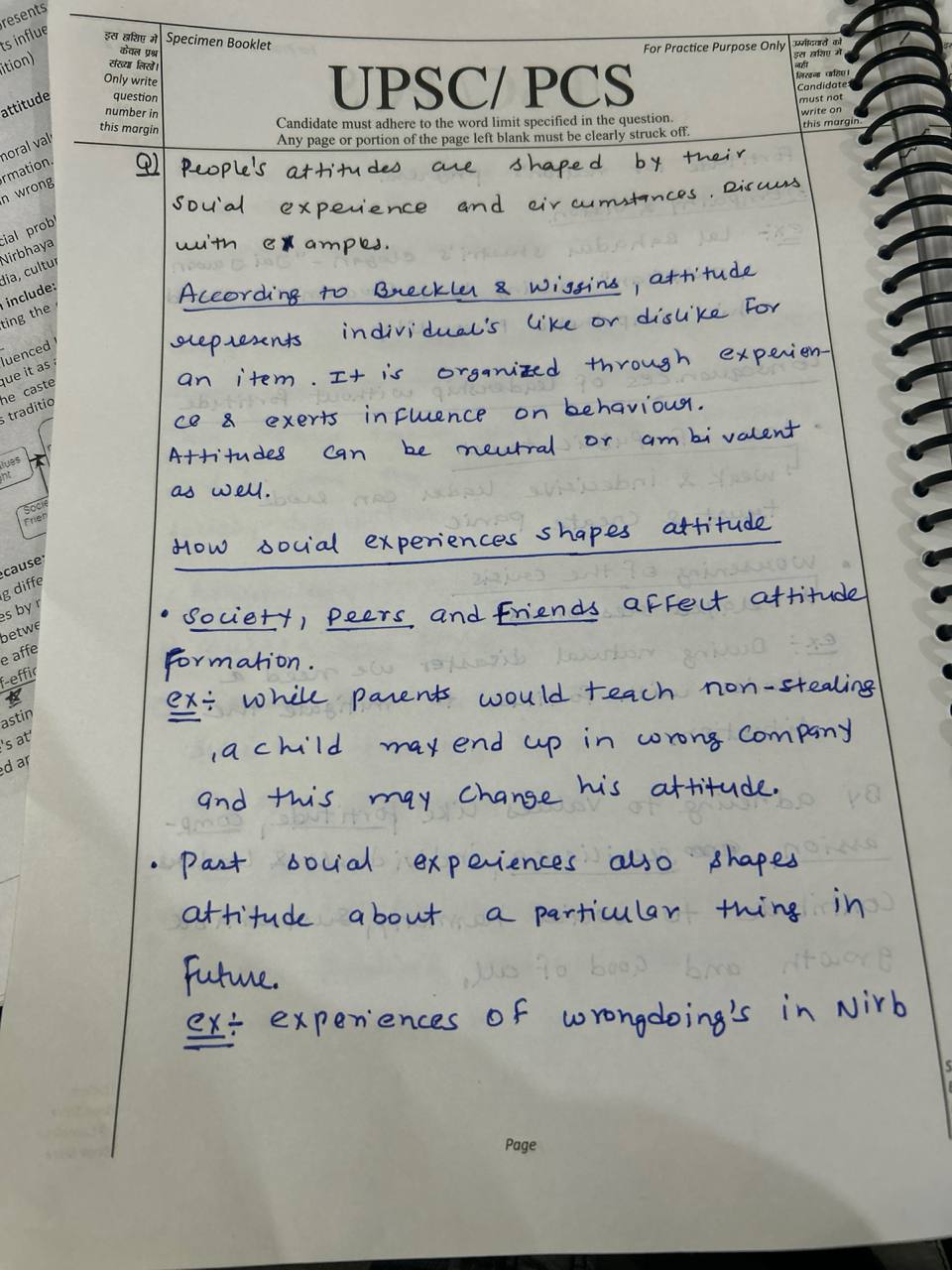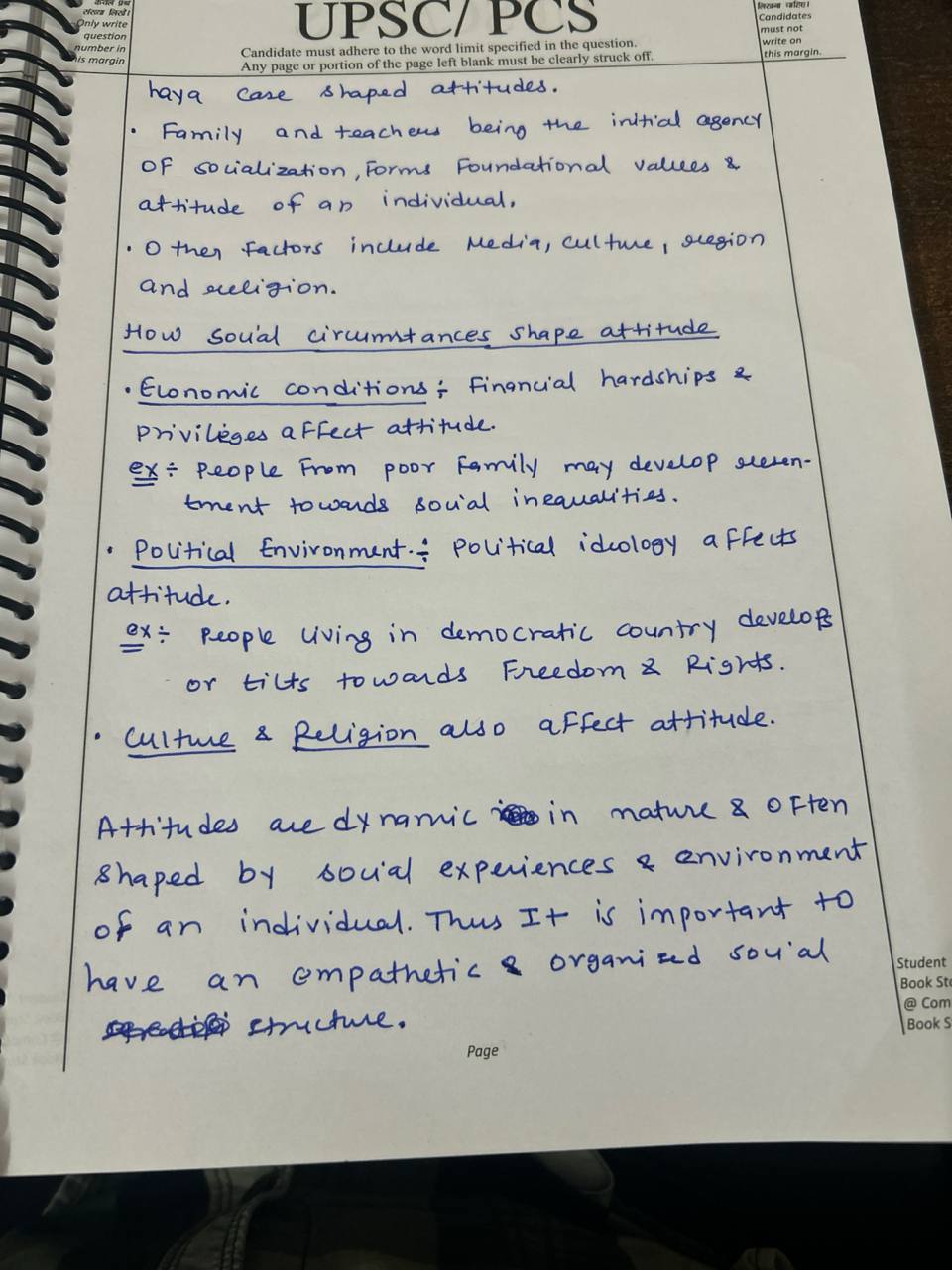Roadmap for Answer Writing Introduction Definition of Positive Attitude: Explain what a positive attitude is—characterized by optimism, constructive thinking, and hopefulness. Importance for Civil Servants: Highlight the necessity of a positive attitude for civil servants who work under extreme stress. A. Factors Contributing to ...
Balancing personal growth with daily responsibilities requires intentional planning and prioritization. One effective strategy is to integrate growth activities into daily routines. For instance, I dedicate 30 minutes each morning to reading books related to my professional field or personal interesRead more
Balancing personal growth with daily responsibilities requires intentional planning and prioritization. One effective strategy is to integrate growth activities into daily routines. For instance, I dedicate 30 minutes each morning to reading books related to my professional field or personal interests. This ensures continuous learning without disrupting my work schedule.
Time blocking is another valuable technique. I allocate specific times for work tasks, personal development, and leisure. For example, I reserve evenings for online courses or skill-building exercises, ensuring that my professional responsibilities are completed during working hours.
Setting clear, achievable goals is crucial. I break down larger objectives into smaller, manageable tasks. This approach helps in tracking progress and maintaining motivation. For instance, if learning a new language, I set weekly goals for vocabulary acquisition and practice through daily language apps.
Leveraging technology aids efficiency. I use productivity apps like Trello to organize tasks and deadlines, ensuring that personal development activities are not overlooked. Additionally, practicing mindfulness and stress management techniques, such as meditation or exercise, helps maintain a balanced mindset.
Lastly, seeking support from family and colleagues can alleviate pressures. Communicating my goals and commitments allows them to provide encouragement and understanding, fostering a supportive environment for growth.
See less


Model Answer Introduction A positive attitude is defined as a mental and emotional state characterized by optimism and constructive thinking. It enables individuals to maintain hopefulness and a favorable outlook, even amidst challenges. This trait is especially crucial for civil servants who oftenRead more
Model Answer
Introduction
A positive attitude is defined as a mental and emotional state characterized by optimism and constructive thinking. It enables individuals to maintain hopefulness and a favorable outlook, even amidst challenges. This trait is especially crucial for civil servants who often operate under extreme stress.
Body
1. Self-awareness and Mindfulness
Understanding one’s emotions, values, and goals fosters a positive outlook. Mindfulness practices, such as meditation and yoga, have been shown to reduce stress and enhance emotional well-being. Research indicates that mindfulness can lead to increased resilience and lower levels of anxiety.
2. Resilience and Adaptability
The ability to bounce back from setbacks and adapt to new situations is vital for maintaining a positive attitude. Studies show that resilient individuals are more likely to view challenges as opportunities for growth, which helps sustain a constructive mindset.
3. Social Support and Teamwork
A supportive network of colleagues, mentors, and friends plays a significant role in fostering a positive attitude. Engaging in teamwork not only helps individuals feel connected but also motivates them to stay positive while working towards common goals.
4. Sense of Purpose and Fulfillment
Having a clear sense of purpose and feeling fulfilled in one’s work significantly contributes to a positive attitude. Research shows that individuals with a strong sense of purpose are more motivated and experience greater life satisfaction.
Indian Examples
Conclusion
A positive attitude is essential for civil servants to effectively serve the public and foster a constructive work environment. By cultivating self-awareness, resilience, social support, and a sense of purpose, individuals can maintain a positive attitude even in stressful circumstances.
See less